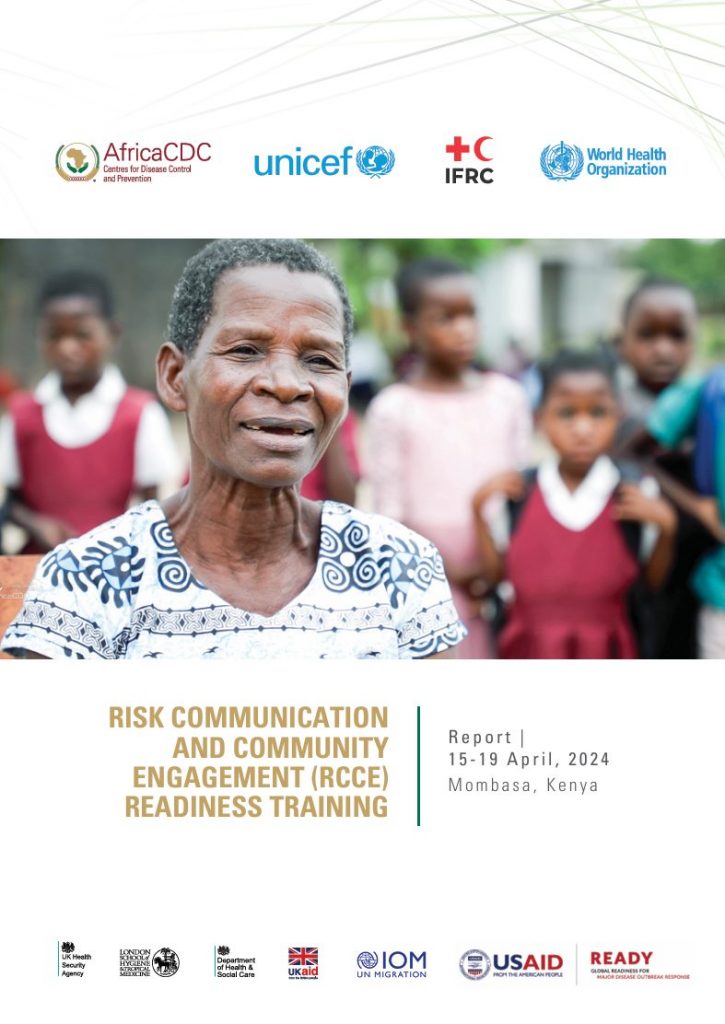Introduction
Overview
The cross-border RCCE readiness training for Eastern Africa was conducted from 15-19 April 2024 in Mombasa, Kenya. The training was attended by Ministry of Health staff across public health emergency response pillars, including Surveillance, Case Management, Infection Prevention and Control (IPC), RCCE and Points of Entry, from the seven African Union (AU) member states (MS); Ethiopia, Kenya, Rwanda, Somalia, South Sudan, Tanzania and Uganda. Participants from Red Cross and Red Crescent National Societies, WHO and UNICEF from these seven countries also participated. A total of 53 participants attended the training, alongside 11 facilitators.
This report has been authored by the RCCE training facilitation team, consisting of the Collective Service (IFRC, UNICEF and WHO), UKHSA-PHRST, Africa CDC, READY Initiative and IOM. It synthesizes key insights collected from the plenary discussions during the training sessions and data gathered throughout the planning, implementation, and evaluation phases. Finally, this report outlines recommendations and proposed next steps for regional and country-level stakeholders, aiming to guide future efforts in enhancing cross-border outbreak readiness in RCCE.
Background
Lessons learned around RCCE in outbreak responses in East and Southern Africa recognise the need to learn from and strengthen national and cross-border collaboration in the face of frequent public health emergencies. In October 2023, One Health partners conducted a Simulation Exercise in the Mandera region between Ethiopia, Kenya, and Somalia to test cross-border readiness. One of the key recommendations from this workshop was that current and future agreements, plans, and SOPs on One Health Emergency Preparedness and Response (EPR) in all three countries should include RCCE for cross-border situations.
In response to cholera outbreaks in the Eastern Africa Region, Africa CDC hosted a Cross-Border Coordination, Collaboration, and Communication workshop in Kampala, Uganda, in October 2023 with participants from Ethiopia, Kenya, South Sudan, and Uganda including IPC/WASH, Cross border/PoE, RCCE and Surveillance focal points from these MS. Participants noted frequent delays in implementing RCCE activities in outbreaks and the need to improve cross-border community engagement and trust for a coordinated response. Recommendations for RCCE responses included the need for training on rapid qualitative assessments to better understand community concerns and the collection and sharing of community feedback, including across borders.
